Company Details
trinityhealth
17,122
135,718
62
trinity-health.org
0
TRI_1061331
In-progress

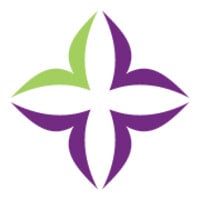
Trinity Health Company CyberSecurity Posture
trinity-health.orgTrinity Health is one of the largest not-for-profit, Catholic health care systems in the nation. It is a family of 123,000 colleagues and nearly 27,000 physicians and clinicians caring for diverse communities across 26 states. Nationally recognized for care and experience, the Trinity Health system includes 88 hospitals, 135 continuing care locations, the second largest PACE program in the country, 136 urgent care locations and many other health and well-being services. Based in Livonia, Michigan, its annual operating revenue is $21.5 billion with $1.4 billion returned to its communities in the form of charity care and other community benefit programs.
Company Details
trinityhealth
17,122
135,718
62
trinity-health.org
0
TRI_1061331
In-progress
Between 750 and 799

 Trinity Health Global Score (TPRM)
Trinity Health Global Score (TPRM)XXXX

Description: Trinity Health Corp. experienced a data breach in January 2021 due to a vulnerability in the Accellion File Transfer Appliance, exposing sensitive patient data. The compromised information included names, addresses, emails, dates of birth, Social Security numbers, medical records (healthcare providers, services, lab results, medications, immunization types), payment details, credit card information, and claims data. Approximately 18,153 California residents were affected, leading to a $450,000 class-action settlement. Victims could claim up to $1,000 for out-of-pocket losses (e.g., identity theft, credit monitoring, card replacements) and a pro rata cash payment (ranging from $11 to $231, depending on claim participation). The breach stemmed from unauthorized access to patient files, raising concerns over inadequate data protection measures. While Trinity Health denied liability, the settlement addressed financial and reputational damages, including potential fraud risks for affected individuals.
Description: The Maine Office of the Attorney General reported a data breach involving Trinity Health on October 23, 2020. The breach, reported to have occurred between April 18, 2020, and May 16, 2020, was due to a cyber-attack on Blackbaud's network, affecting 6,288 individuals, including at least 6 Maine residents, and compromising financial account details among other types of information.


No incidents recorded for Trinity Health in 2026.
No incidents recorded for Trinity Health in 2026.
No incidents recorded for Trinity Health in 2026.
Trinity Health cyber incidents detection timeline including parent company and subsidiaries

Trinity Health is one of the largest not-for-profit, Catholic health care systems in the nation. It is a family of 123,000 colleagues and nearly 27,000 physicians and clinicians caring for diverse communities across 26 states. Nationally recognized for care and experience, the Trinity Health system includes 88 hospitals, 135 continuing care locations, the second largest PACE program in the country, 136 urgent care locations and many other health and well-being services. Based in Livonia, Michigan, its annual operating revenue is $21.5 billion with $1.4 billion returned to its communities in the form of charity care and other community benefit programs.

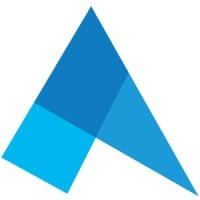
Ardent Health is a leading provider of healthcare in growing mid-sized urban communities across the U.S. With a focus on people and investments in innovative services and technologies, Ardent is passionate about making healthcare better and easier to access. Through its subsidiaries, Ardent delivers
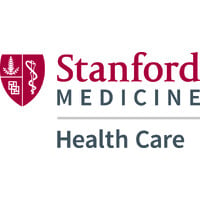
Stanford Health Care, with multiple facilities throughout the Bay Area, is internationally renowned for leading edge and coordinated care in cancer care, neurosciences, cardiovascular medicine, surgery, organ transplant, medicine specialties, and primary care. Throughout its history, Stanford has be

UT Southwestern is an academic medical center, world-renowned for its research, regarded among the best in the country for medical education and for clinical and scientific training, and nationally recognized for the quality of care its faculty provides to patients at UT Southwestern’s University Ho
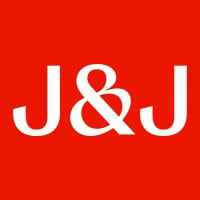
At Johnson & Johnson, we believe health is everything. As a focused healthcare company, with expertise in Innovative Medicine and MedTech, we’re empowered to tackle the world’s toughest health challenges, innovate through science and technology, and transform patient care. All of this is possibl
Sutter Health is a not-for-profit, people-centered healthcare system providing comprehensive care throughout California. Sutter Health is committed to innovative, high-quality patient care and community partnerships, and innovative, high-quality patient care. Today, Sutter Health is pursuing a bold

R1 is the leader in healthcare revenue management, helping providers achieve new levels of performance through smart orchestration. A pioneer in the industry, R1 created the first Healthcare Revenue Operating System: a modular, intelligent platform that integrates automation, AI, and human expertise
Committed to Life - We save and improve human lives with affordable, accessible, and innovative healthcare products and the highest quality in clinical care. Fresenius is a global healthcare company headquartered in Bad Homburg v. d. Höhe, Germany. In fiscal year 2024, Fresenius generated €21.5 bil
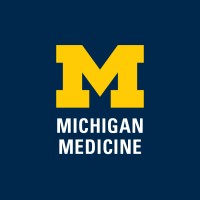
Michigan Medicine, based in Ann Arbor, Michigan, is part of one of the world’s leading universities. Michigan Medicine is a premier, highly ranked academic medical center and award-winning health care system with state-of-the-art facilities. Our vision is to create the future of health care throu
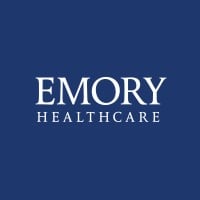
Emory Healthcare is the most comprehensive health care system in Georgia. We offer 11 hospitals, the Emory Clinic, more than 250 provider locations, and more than 2,800 physicians specializing in 70 different medical subspecialties. Meaning we can provide treatments and services that may not be avai
.png)
Citing financial pressure, Livonia-based Trinity Health is slashing 10.5% of jobs across 15 states in its revenue cycle department.
GRAND RAPIDS, Mich. (WOOD) — Trinity Health is laying off employees in its revenue cycle department. The health care system is laying off...
Epic alongside UMass Memorial, OCHIN, Reid Health and Trinity Health filed a lawsuit on Tuesday against Health Gorilla and other companies.
LIVONIA, Mich., January 07, 2026--Trinity Health today announced that it delivered $2.9 billion in programs and services during fiscal year...
In 2023, 725 data breaches were reported to OCR and across those breaches, more than 133 million records were exposed or impermissibly disclosed.
Across African healthcare systems, a pattern is emerging. As digitization accelerates, the greatest cybersecurity threat isn't...
Officials said the recommendation is due to an increase in upper respiratory tract illnesses.
Trinity Health PACE Chief Operating Officer Anne Lewis says health systems need to be educated on the benefits of the program.
Bronson is proud to welcome three new leaders to its executive team who bring a wealth of collective experience in healthcare strategy and...

Explore insights on cybersecurity incidents, risk posture, and Rankiteo's assessments.
The official website of Trinity Health is http://www.trinity-health.org.
According to Rankiteo, Trinity Health’s AI-generated cybersecurity score is 750, reflecting their Fair security posture.
According to Rankiteo, Trinity Health currently holds 0 security badges, indicating that no recognized compliance certifications are currently verified for the organization.
According to Rankiteo, Trinity Health has not been affected by any supply chain cyber incidents, and no incident IDs are currently listed for the organization.
According to Rankiteo, Trinity Health is not certified under SOC 2 Type 1.
According to Rankiteo, Trinity Health does not hold a SOC 2 Type 2 certification.
According to Rankiteo, Trinity Health is not listed as GDPR compliant.
According to Rankiteo, Trinity Health does not currently maintain PCI DSS compliance.
According to Rankiteo, Trinity Health is not compliant with HIPAA regulations.
According to Rankiteo,Trinity Health is not certified under ISO 27001, indicating the absence of a formally recognized information security management framework.
Trinity Health operates primarily in the Hospitals and Health Care industry.
Trinity Health employs approximately 17,122 people worldwide.
Trinity Health presently has no subsidiaries across any sectors.
Trinity Health’s official LinkedIn profile has approximately 135,718 followers.
Trinity Health is classified under the NAICS code 62, which corresponds to Health Care and Social Assistance.
No, Trinity Health does not have a profile on Crunchbase.
Yes, Trinity Health maintains an official LinkedIn profile, which is actively utilized for branding and talent engagement, which can be accessed here: https://www.linkedin.com/company/trinityhealth.
As of January 24, 2026, Rankiteo reports that Trinity Health has experienced 2 cybersecurity incidents.
Trinity Health has an estimated 31,610 peer or competitor companies worldwide.
Incident Types: The types of cybersecurity incidents that have occurred include Cyber Attack and Breach.
Total Financial Loss: The total financial loss from these incidents is estimated to be $450 thousand.
Detection and Response: The company detects and responds to cybersecurity incidents through an communication strategy with direct mail notices to affected california residents..
Title: Data Breach at Trinity Health
Description: The Maine Office of the Attorney General reported a data breach involving Trinity Health on October 23, 2020. The breach, reported to have occurred between April 18, 2020, and May 16, 2020, was due to a cyber-attack on Blackbaud's network, affecting 6,288 individuals, including at least 6 Maine residents, and compromising financial account details among other types of information.
Date Detected: 2020-10-23
Date Publicly Disclosed: 2020-10-23
Type: Data Breach
Attack Vector: Cyber-attack on third-party network
Title: Trinity Health Data Breach via Accellion File Transfer Appliance (January 2021)
Description: Trinity Health Corp. experienced a data breach in January 2021 due to a vulnerability in the Accellion File Transfer Appliance (FTA). Unauthorized parties accessed sensitive patient data, including names, addresses, Social Security numbers, medical records, and payment information. The breach affected approximately 18,153 California residents, leading to a $450,000 class action settlement. Affected individuals may claim up to $1,000 for out-of-pocket losses and a pro rata cash payment, depending on claim participation rates.
Date Detected: 2021-01-20
Type: Data Breach
Attack Vector: Exploitation of vulnerability in Accellion File Transfer Appliance (FTA)
Vulnerability Exploited: Accellion FTA (specific CVE not mentioned)
Threat Actor: Unauthorized party (unknown specific actor)
Motivation: Financial GainData Theft
Common Attack Types: The most common types of attacks the company has faced is Breach.
Identification of Attack Vectors: The company identifies the attack vectors used in incidents through Accellion File Transfer Appliance (FTA).

Data Compromised: Financial account details, Other types of information

Financial Loss: $450,000 (settlement fund)
Data Compromised: Names, Addresses, Emails, Dates of birth, Health care providers, Dates and types of health care services, Medical record numbers, Immunization types, Lab results, Medications, Payments, payer names, and claims information, Social security numbers, Credit card information
Systems Affected: Accellion File Transfer Appliance (FTA)
Customer Complaints: Class action lawsuit filed by affected individuals
Brand Reputation Impact: Negative (class action settlement and public disclosure)
Legal Liabilities: $450,000 settlement (including attorneys' fees, administration costs, and class member payments)
Identity Theft Risk: High (SSNs, credit card info, and medical data exposed)
Payment Information Risk: High (credit card information and payment details compromised)
Average Financial Loss: The average financial loss per incident is $225.00 thousand.
Commonly Compromised Data Types: The types of data most commonly compromised in incidents are Financial Account Details, Other Types Of Information, , Personally Identifiable Information (Pii), Protected Health Information (Phi), Payment Information and .

Entity Name: Trinity Health
Entity Type: Healthcare
Industry: Healthcare
Customers Affected: 6288

Entity Name: Trinity Health Corp.
Entity Type: Healthcare Provider
Industry: Healthcare
Location: United States (California residents primarily affected)
Customers Affected: 18,153 (California residents)

Communication Strategy: Direct mail notices to affected California residents

Type of Data Compromised: Financial account details, Other types of information
Number of Records Exposed: 6288

Type of Data Compromised: Personally identifiable information (pii), Protected health information (phi), Payment information
Number of Records Exposed: 18,153 (California residents)
Sensitivity of Data: High (includes SSNs, medical records, and credit card info)
Data Exfiltration: Yes (files accessed by unauthorized party)
Personally Identifiable Information: NamesAddressesEmailsDates of birthSocial Security numbersMedical record numbersCredit card information

Data Exfiltration: Yes (via Accellion FTA exploitation)

Legal Actions: Class action lawsuit settled for $450,000
Ensuring Regulatory Compliance: The company ensures compliance with regulatory requirements through Class action lawsuit settled for $450,000.

Source: Maine Office of the Attorney General
Date Accessed: 2020-10-23

Source: Class Action Settlement Notice (Jane Doe v. Trinity Health Corp.)

Source: Kroll Settlement Administration LLC
Additional Resources: Stakeholders can find additional resources on cybersecurity best practices at and Source: Maine Office of the Attorney GeneralDate Accessed: 2020-10-23, and Source: Class Action Settlement Notice (Jane Doe v. Trinity Health Corp.), and Source: Kroll Settlement Administration LLC.

Investigation Status: Settled (class action lawsuit resolved)
Communication of Investigation Status: The company communicates the status of incident investigations to stakeholders through Direct mail notices to affected California residents.

Stakeholder Advisories: Direct mail notices to affected individuals
Customer Advisories: Claim filing instructions provided via mail and online (deadline: Jan. 19, 2026)
Advisories Provided: The company provides the following advisories to stakeholders and customers following an incident: were Direct mail notices to affected individuals, Claim filing instructions provided via mail and online (deadline: Jan. 19 and 2026).

Entry Point: Accellion File Transfer Appliance (FTA)
High Value Targets: Patient Data, Payment Information,
Data Sold on Dark Web: Patient Data, Payment Information,

Root Causes: Failure to adequately safeguard Accellion FTA (vulnerability exploitation)
Last Attacking Group: The attacking group in the last incident was an Unauthorized party (unknown specific actor).
Most Recent Incident Detected: The most recent incident detected was on 2020-10-23.
Most Recent Incident Publicly Disclosed: The most recent incident publicly disclosed was on 2020-10-23.
Highest Financial Loss: The highest financial loss from an incident was $450,000 (settlement fund).
Most Significant Data Compromised: The most significant data compromised in an incident were financial account details, other types of information, , Names, Addresses, Emails, Dates of birth, Health care providers, Dates and types of health care services, Medical record numbers, Immunization types, Lab results, Medications, Payments, payer names, and claims information, Social Security numbers, Credit card information and .
Most Significant System Affected: The most significant system affected in an incident was Accellion File Transfer Appliance (FTA).
Most Sensitive Data Compromised: The most sensitive data compromised in a breach were Dates and types of health care services, Immunization types, financial account details, Addresses, Social Security numbers, Names, Dates of birth, Lab results, Credit card information, Medications, Health care providers, Emails, Payments, payer names, and claims information, Medical record numbers and other types of information.
Number of Records Exposed in Most Significant Breach: The number of records exposed in the most significant breach was 18.8K.
Most Significant Legal Action: The most significant legal action taken for a regulatory violation was Class action lawsuit settled for $450,000.
Most Recent Source: The most recent source of information about an incident are Maine Office of the Attorney General, Kroll Settlement Administration LLC and Class Action Settlement Notice (Jane Doe v. Trinity Health Corp.).
Current Status of Most Recent Investigation: The current status of the most recent investigation is Settled (class action lawsuit resolved).
Most Recent Stakeholder Advisory: The most recent stakeholder advisory issued was Direct mail notices to affected individuals, .
Most Recent Customer Advisory: The most recent customer advisory issued were an Claim filing instructions provided via mail and online (deadline: Jan. 19 and 2026).
Most Recent Entry Point: The most recent entry point used by an initial access broker was an Accellion File Transfer Appliance (FTA).
.png)
Typemill is a flat-file, Markdown-based CMS designed for informational documentation websites. A reflected Cross-Site Scripting (XSS) exists in the login error view template `login.twig` of versions 2.19.1 and below. The `username` value can be echoed back without proper contextual encoding when authentication fails. An attacker can execute script in the login page context. This issue has been fixed in version 2.19.2.
A DOM-based Cross-Site Scripting (XSS) vulnerability exists in the DomainCheckerApp class within domain/script.js of Sourcecodester Domain Availability Checker v1.0. The vulnerability occurs because the application improperly handles user-supplied data in the createResultElement method by using the unsafe innerHTML property to render domain search results.
A Remote Code Execution (RCE) vulnerability exists in Sourcecodester Modern Image Gallery App v1.0 within the gallery/upload.php component. The application fails to properly validate uploaded file contents. Additionally, the application preserves the user-supplied file extension during the save process. This allows an unauthenticated attacker to upload arbitrary PHP code by spoofing the MIME type as an image, leading to full system compromise.
A UNIX symbolic link following issue in the jailer component in Firecracker version v1.13.1 and earlier and 1.14.0 on Linux may allow a local host user with write access to the pre-created jailer directories to overwrite arbitrary host files via a symlink attack during the initialization copy at jailer startup, if the jailer is executed with root privileges. To mitigate this issue, users should upgrade to version v1.13.2 or 1.14.1 or above.
An information disclosure vulnerability exists in the /srvs/membersrv/getCashiers endpoint of the Aptsys gemscms backend platform thru 2025-05-28. This unauthenticated endpoint returns a list of cashier accounts, including names, email addresses, usernames, and passwords hashed using MD5. As MD5 is a broken cryptographic function, the hashes can be easily reversed using public tools, exposing user credentials in plaintext. This allows remote attackers to perform unauthorized logins and potentially gain access to sensitive POS operations or backend functions.

Get company history
















Every week, Rankiteo analyzes billions of signals to give organizations a sharper, faster view of emerging risks. With deeper, more actionable intelligence at their fingertips, security teams can outpace threat actors, respond instantly to Zero-Day attacks, and dramatically shrink their risk exposure window.
Identify exposed access points, detect misconfigured SSL certificates, and uncover vulnerabilities across the network infrastructure.
Gain visibility into the software components used within an organization to detect vulnerabilities, manage risk, and ensure supply chain security.
Monitor and manage all IT assets and their configurations to ensure accurate, real-time visibility across the company's technology environment.
Leverage real-time insights on active threats, malware campaigns, and emerging vulnerabilities to proactively defend against evolving cyberattacks.




